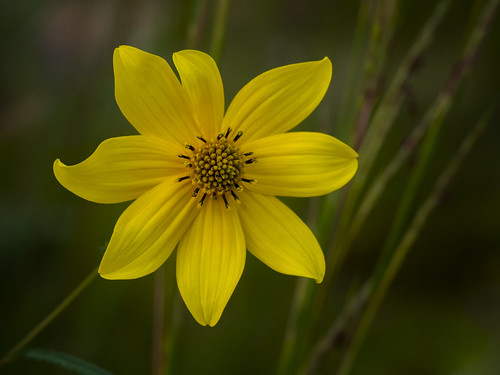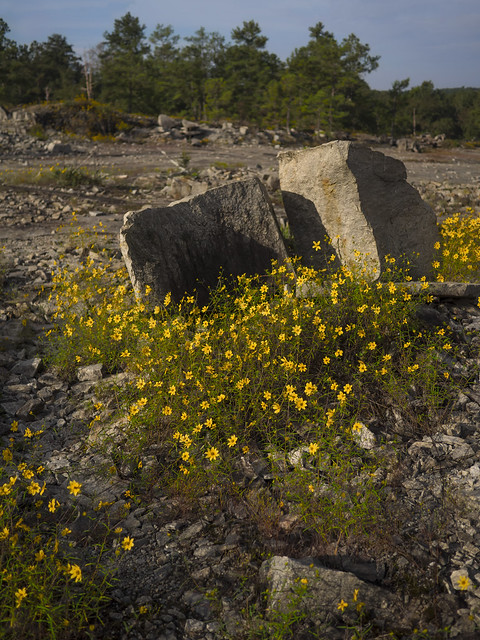— Arabia Mountain park ranger
A native 'Porter's sunflower' wildflower —one among thousands blooming in early autumn on Arabia Mountain— in DeKalb County, Georgia, USA. 25 September 2023.
Every year in September, an explosion of yellow flowers covers granite outcrops such as Arabia and Panola Mountains. These are yellow daisies (Helianthus porteri). Related to sunflowers, they are one of the fall wonders within the Arabia Mountain National Heritage Area. Found in only 4 states —Georgia, Alabama, North Carolina, and South Carolina— the flowers are most common on the granite outcrops of the Georgia Piedmont region, thriving in fragile solution pits —often dry, sandy vernal pools— found on bare rock faces.— Arabia Mountain Heritage Area Alliance.
***************
Literally growing from the granite outcrops of Arabia Mountain, the blossoms are a riot of yellow, a marker of autumn's arrival in Georgia. But...are they true daisies?
Helianthus porteri is a species of sunflower (Helianthus) —commonly known as Porter's sunflower, Stone Mountain daisy, and Confederate daisy— native to the southeastern United States, particularly Georgia and Alabama.— Wikipedia.
Helianthus porteri grows on thin soils on and around flat rock granite and gneiss outcrops. It grows up to 40 inches tall (100 cm). One plant usually produces 5 or more small flower heads, each containing 7 or 8 yellow ray florets surrounding a central disk of 30 or more yellow florets. A summer annual that blooms in the fall, Helianthus porteri drops seeds that grow the following year.
The term 'daisy' is imprecise because the species is a sunflower rather than a daisy (Bellis and related genera). Likewise, although the plant grows on Stone Mountain, in Georgia, its range extends beyond. The connection to the Confederacy is through Stone Mountain which contains a confederate monument, although the connection is tenuous as the species was named before the Civil War, in 1849, in honor of Thomas Conrad Porter, a Pennsylvanian minister and botanist who collected the plant in Georgia.














